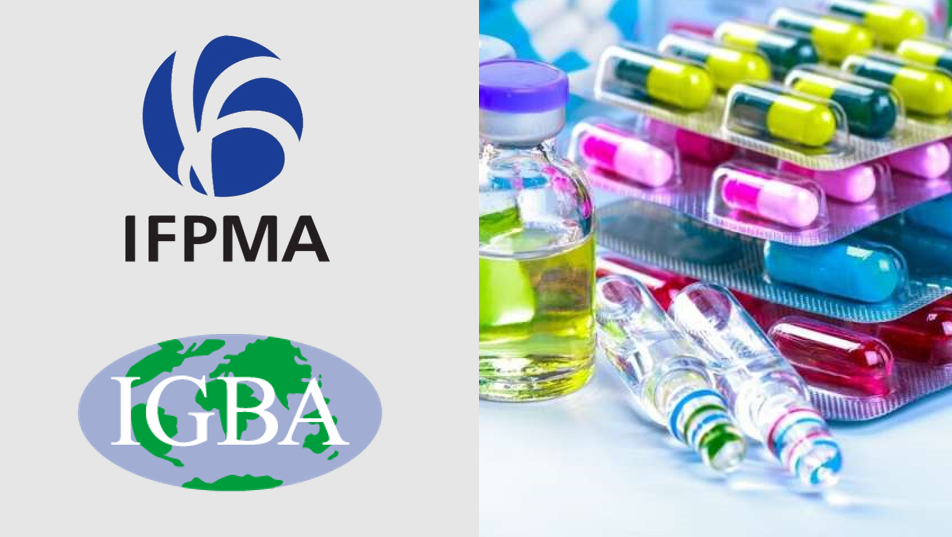News & Trends - Pharmaceuticals
Innovative and generic medicines industry bodies unite on equitable access

Pharma News: Research-based and generic & biosimilar pharmaceutical industry bodies delivered a statement at the recent World Health Assembly declaring their shared commitment to equitable access to COVID-19 medicines and vaccines.
In their joint statement, the International Federation of Pharmaceutical Manufacturers & Associations (IFPMA) and International Generic and Biosimilar Medicines Association (IGBA), acknowledge their responsibility and commitment to support the international response to the pandemic with their unique scientific, technical and manufacturing expertise to meet the increased demand for medicines; and to the discovery and development of affordable therapeutics and vaccines for COVID-19. However, for the pharmaceutical industry to do so fully, it requires others to play their part.
In April 2020, in an important collaborative step, Medicines Australia (MA) and the Generic and Biosimilar Medicines Association (GBMA) were granted ACCC Authorisation to permit discussions and the implementation of strategies that support the continued supply of essential medicines and associated supplies to Australians, including those urgently needed for the treatment of COVID-19. Future directions of this collaboration are presently unclear.
The two global pharmaceutical industry bodies list eight areas of shared concern that require international solidarity, cooperation, coordination and support. They also underscore the need to ensure adequate resources are spent to build stronger, more resilient health systems.
- Ensure trade barriers, including export restrictions, are lifted, as they impact the ability to receive materials, including critical raw ingredients, active pharmaceutical ingredients (APIs) and medical devices for our own supply chains, and impede the ability to distribute critically-needed finished products;
- Ensure continued disease surveillance and open and rapid sharing of information;
- Facilitate rapid development of robust forecasting models and clear, coordinated demand planning to inform decisions on clinical development, scale-up, and right-sizing of manufacturing assets for diagnostics, therapeutics and vaccines;
- Establish, in collaboration with cross-sector initiatives such as ACT-A, risk-sharing models, including funding for manufacturing investments and advance purchase agreements, that recognise the uncertainty of the pandemic as the actual demand, geography, and epidemiology of the disease evolves over time;
- Encourage national regulatory agency alignment and collaboration across borders through good reliance practices that improve and expedite access to therapeutics and vaccines, whilst ensuring product quality, efficacy and safety and international manufacturing standards;
- Create opportunities for partnership between the private and public sectors across the spectrum of health issues that are critical to address the pandemic;
- Support an effective and balanced intellectual proper ty framework, a key factor to enable R&D, accelerate manufacturing scale-up, and facilitate licensing for therapeutics and vaccines;
- Ensure equitable access for COVID-19 therapeutics and vaccines at global and national levels by supporting multilateral organisations and country leaders to align on allocation principles in line with WHO agreed principles.
The IFPMA and IGBA are founding partners of the Access to COVID-19 Tools (ACT) Accelerator. By joining this unique multi-stakeholder partnership, the industry bodies recognised their shared responsibility in bringing their unique scientific, technical and manufacturing expertise to meet the increased demand for medicines.
Moving forward, the two industry bodies (IGBA and IFPMA) point to the importance of ensuring adequate resources are spent to build stronger, more resilient health systems that can cope with complex health challenges.
It will also be essential to minimise the disruption to the provision of essential health services and continue the fight against priority diseases. Not to do so will undermine the significant progress we have made together on major health challenges such as non-communicable diseases (NCDs), routine immunisation, and other infectious diseases.
News & Trends - MedTech & Diagnostics

Bariatric surgery trumps Novo Nordisk’s Wegovy in cost-effectiveness and durability
MedTech & Diagnostics News: Bariatric surgery emerges as cost-effective, boasting superior and enduring weight loss outcomes over a five-year span […]
MoreNews & Trends - Pharmaceuticals

Aussie digital health company hits new milestone in AstraZeneca partnership
Pharma News: Fewer than 50% of asthma patients adhere to their prescribed preventative medications. An Australian digital health company has […]
MoreDigital & Innovation

Medical drone to reduce health equity gaps in rural and remote Australia
A specialised medical drone which increases accessibility to essential health services such as pathology, medicines, and telehealth services in rural […]
More